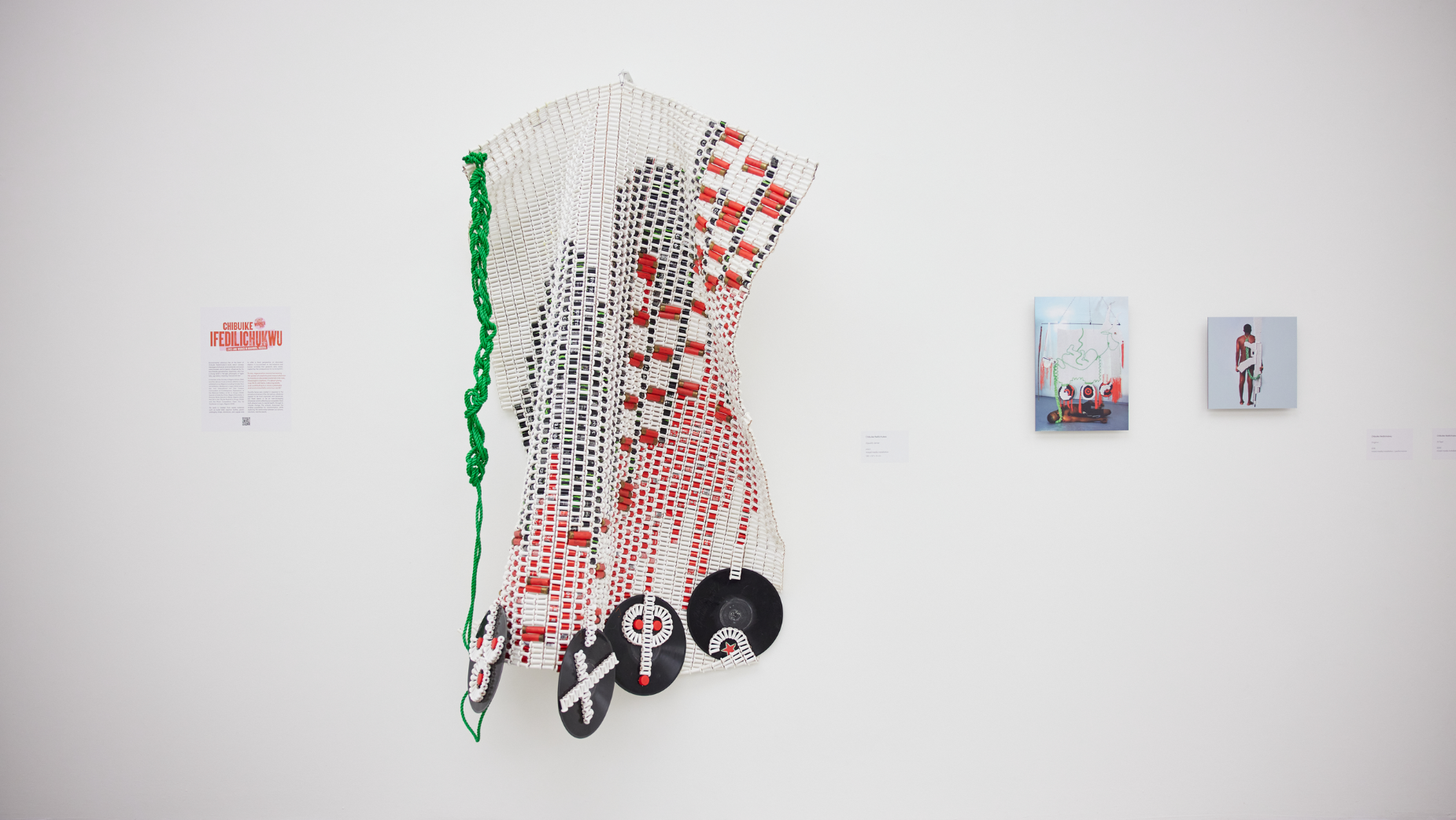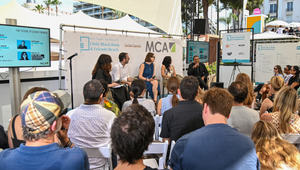
Art for Change: Meet the Winner for Middle East & Africa

Above: Middle East & Africa Winning entry – ‘’Equality Sense’ by Chibuike Ifedilichukwu
Global creative solutions company M&C Saatchi Group, in partnership with London’s iconic Saatchi Gallery, present the six winners of their annual international art initiative for emerging artists, the Art for Change Prize.
With the concept of Art for Change in mind, this year’s climate focused prize invited emerging artists from around the world to explore one of the most urgent issues of our time and creatively respond to the theme ‘Regeneration’. The six winning artworks open a conversation to examine the theme from different global perspectives, look to create new stories of a liveable future, and empower individuals and entities to act. It’s a call to action for meaningful change, recognising that there’s no art on a dead planet.
Selected from over 3,000 entries from 130 countries worldwide, our six winners were decided by some of the best business and creative minds from the M&C Saatchi Group globally and eminent guest judges. In this Art for Change series, we hear from the winners for 2023.
See the Art for Change Prize Winners exhibition at Saatchi Gallery, London from 30 November 2023 – 7 January 2024. The Art for Change Prize will return in Spring 2024.

Q> Describe yourself in three words:
Chibuike> Ingenious, Creative, Inspiring.
Q> Why did you apply for the Art for Change Prize?
Chibuike> I applied because I believe an opportunity like this will provide me with an exploratory art landscape and expand my artistic horizons. It will offer new insights and perspectives and foster new relationships, thereby engaging my art in a new culture. This experience will broaden my scope as an emerging artist, especially having the chance to exhibit my art in the prestigious Saatchi Gallery in London alongside five amazing artists from different parts of the continent.
Q> Can you tell us more about where you are from and how this affects your work?
Chibuike> I am a native of Akwaeze in Anambra State, Nigeria. Growing up in Akwaeze shaped my perspectives, influenced my experiences, and informed my artistic expressions. Akwaeze is a community steeped in a vibrant cultural heritage. Most of our traditions and customs highlight the importance of maintaining harmony with nature and advocating for its respectful treatment. Being part of this community deeply influences the narrative and emotional depth of my creations, infusing them with authenticity and a unique perspective.
Q> Tell us about your winning artwork and the relationship to this year’s theme ‘Regeneration’.
Chibuike> Regeneration means harnessing the power of creativity and resourcefulness to transform discarded materials into new, meaningful creations. It’s about giving new life to old items, reducing waste, and contributing to a more sustainable and environmentally conscious world. It can apply to various contexts, from nature and biology to urban development and sustainability.
My work ‘Equality Sense’ responds to the paradoxical nature of the 21st century, where we appear to be most organised and advanced, but there seems to be an ever-increasing inhumane activity affecting our ecosystem, from both physical wars and mental health to climate change. The artwork showcases the endless possibilities for transformation while exploring the relationship between our actions, inactions, and the results.
My work is created from waste materials such as bullet shells, rope, knops, aluminium, and copper wire to offer a fresh perspective on discarded objects. It is a commentary on the industrial and human activities that generate daily waste while neglecting the consequences for our ecosystem.
Q> Where do you find your inspiration?
Chibuike> I draw inspiration from traditional Igbo philosophies that highlight the interconnectedness between humanity and the environment.
Q> Do you believe that art has the power to change the world?
Chibuike> Yes, art holds significant power in shaping the world around us, given its integral presence in every aspect of life's experiences. From childhood, our engagement with human activities and nature is steeped in artistry, evident in natural hues, architectural designs, and even scientific endeavours. Art is intertwined with the very conception and visualisation processes, making it an inseparable part of fields such as science.
Art is relevant in today's contemporary world. Its absence would render our world devoid of depth and substance. As I've immersed myself in the realm of art, I've realised the profound emptiness life would embody without its presence in our lives. Art serves as a tool for addressing various contemporary challenges—from fostering sustainability in environments to confronting societal norms and advocating for social consciousness. It stands as a beacon against the misuse of power, contributing to the creation of a more balanced and empathetic society.
Q> If you could be compared to one artist from art history, who would it be?
Chibuike> Hmmm. I think this is a tough one as I believe each artist is unique. I do have artists whom I admire greatly and whose works have greatly influenced mine. The renowned Nigerian sculptor and painter, Ben Enwonwu, and the Ghanaian sculptor, El Anatsui.
I've always been fascinated by Ben Enwonwu's innovative approach, using materials, tradition, and craftsmanship to express his ideas. Similarly, El Anatsui's installations captivate me; they involve collecting numerous aluminium pieces from alcohol recycling stations and intricately weaving them together with copper wire, resulting in breathtaking metallic wall sculptures resembling cloth.
Q> What’s your dream for the future?
Chibuike> I envision my art becoming a globally recognised household name, influential, and a source of inspiration. My dream for the future is to witness my art displayed and collected worldwide through exhibitions, art fairs, and residencies.
As a way of giving back to my community, Akwaeze, I also aim to establish a community-based art initiative focused on promoting environmental causes, instituting apprenticeship systems, and providing mentorship programmes. I am driven to empower young and indigenous artists by offering them opportunities and platforms that showcase their works to the wider art world.















